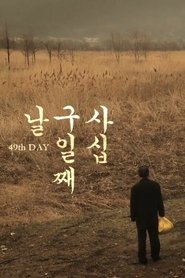detail profile im hyeong tae

Im Hyeong-tae
임형태
atau dikenal sebagai
Info Pribadi
Peran Yang Di Mainkan Im Hyeong-tae
 Yunhwa who works at a shipyard...
Yunhwa who works at a shipyard...Star of Ulsan 2024
Yunhwa, who works at a shipyard to manage their livelihood after her husband′s accident, receives a notice of unfair dismissal. To make matters worse, their relatives suddenly come and try to take away the family land. Her son loses a large sum of money with Bitcoin, and her daughter dreams of escaping to Seoul while giving up her studies.
 Minsoo is about to get married...
Minsoo is about to get married...My Heart Puppy 2023
Min-soo is about to get married when his fiancée suddenly admits that she is allergic to dogs. Now the guy's best friend, the golden retriever Rooney, needs a new family. With the help of his cousin and social media, Min-soo starts looking for a new home for Rooney.
 Kyungah works as a caregiver and...
Kyungah works as a caregiver and...Gyeong-ah's Daughter 2022
Kyung-ah works as a caregiver and lives alone. The only one she can rely on is her daughter, Yeonsu, but it's hard to see her after her independence. Meanwhile, Yeonsu, who was suffering from his ex-boyfriend, argues with him again and heads home. After Yeonsu left, Kyung-ah receives a shocking message.
 When Sumi a high school senior...
When Sumi a high school senior...Good Morning 2022
When Sumi, a high school senior raised at an orphanage, decides to suicide, hospice nurse Seojin dramatically stops her. Nowhere else to go, Sumi visits Seojin's hospital to find a way to end her life. For the first time, she finds attention, love, and comfort from those who are spending their last moments in life.
 Is it acceptable for a fortysomething...
Is it acceptable for a fortysomething...Pascha 2015
Is it acceptable for a forty-something woman to be in a relationship with 17-year-old boy? The idea of love between two people with such an age gap and the social exclusion that it can bring is the subject of Pascha. Gaeul is a 40-year-old screenwriter who lives with 17-year-old Joseph and their cats. The families of the two lovers cannot comprehend the relationship. Gaeul's family are especially baffled by every aspect of her life; raising a cat and living off of vegetables, let alone having a 17-year-old lover! Gaeul's family see her as the family's dirty little secret. More and more obstacles from society are placed between the lovers and their happy ever after; poverty, death, opposition against vegetarianism and the couple's pregnancy. Can a love like this survive no matter the odds in today's society?
 Family members left behind who have...
Family members left behind who have...